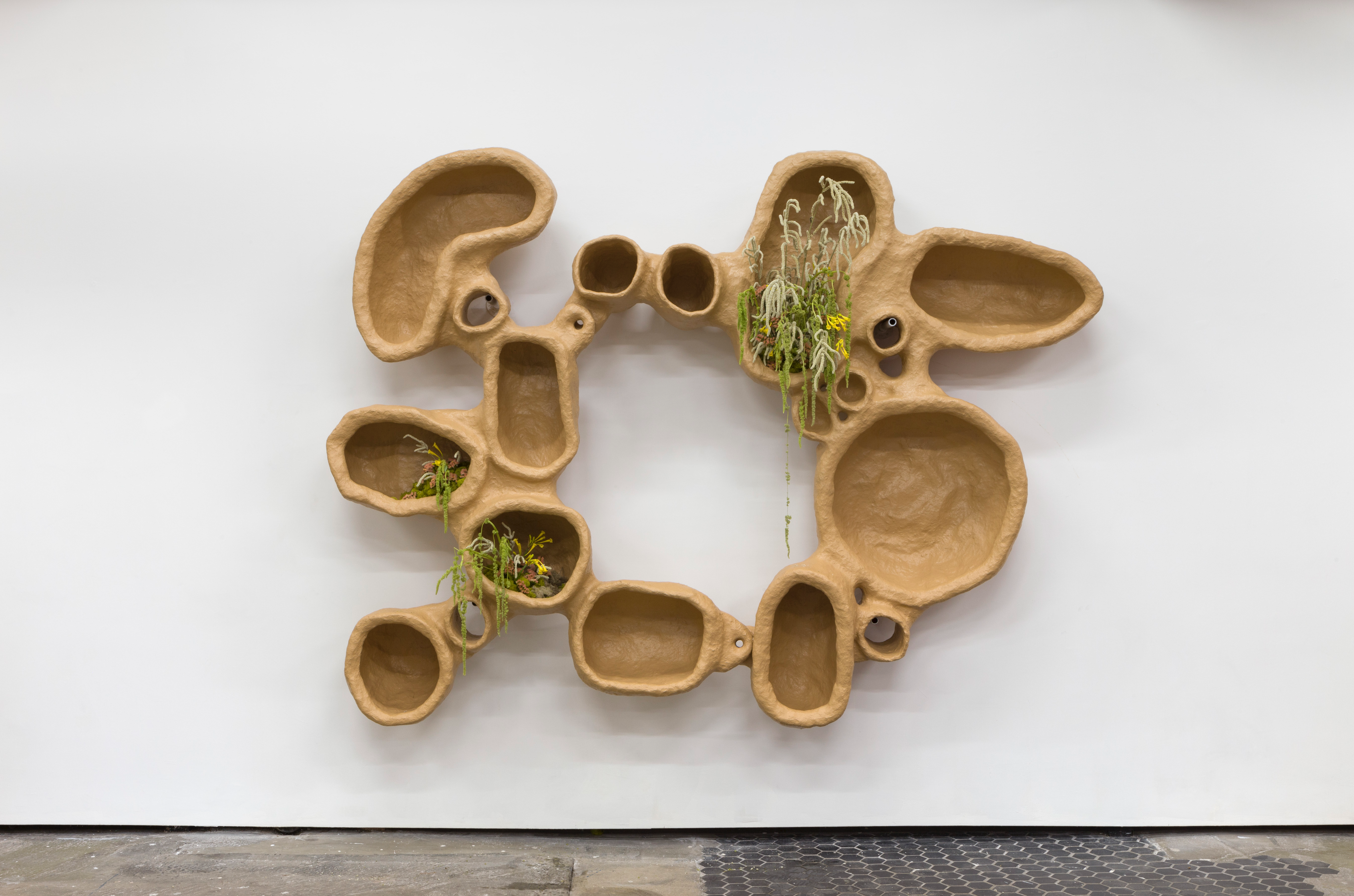
Thomas BargerGrowing Up
“My furniture is turning into sculpture. Since ‘coming out’ to my family last winter i have been reflecting more than ever about my childhood experiences. Each piece seems to be split down the middle with an equal focus on a love element and a utilitarian one. This body of work embraces my past as i enter into adulthood.” — Thomas Barger
Installation Views
Artwork
Thomas Barger grew up on his family homestead in Illinois, where his childhood was filled with farming, a rigorous religious practice, and community. Shifting his landscape at 22, Barger moved to New York, where he interned at MoMA PS1, while exploring the city streets and making money as a dog walker. For his inaugural show at Salon 94 Design, Barger converges both personal histories—his rural roots and his urban route—to tell his story, and define his material form.
Specific shared memories with loved ones are translated into usable sculptures; several of the pieces, for example, embrace the daily repetitive housework of Barger’s mother. In his hands, her tasks are re-ordered to high ritual. Recalling the washing and folding of laundry, his sorters and hampers recount his mother’s care. Further, each basket is dedicated to a friend or family member, where there is a transference of his mother’s task into his own hand: “a basket for Sarah, a basket for David, a basket for Dad, a basket for Mom, a basket for me.” Learning to fold laundry is inspired by material found on the farm, such as alfalfa hay and sisal baling twine. This sculpture combines a rug and organizing containers using a coil-like technique.
Sunday dinners are celebrated, and as the family grows, tables are added over time. Barger describes his foldable picnic table, My Family is Getting Bigger, as a sculpture with roots in family gatherings. “My family would come together after church, when either my Aunt, Grandma, or Mom would be the hostess, and cook an insane amount of food for our family. Now that my brother and sister are getting married, their spouses become part of the family too and in doing so expanding the family, highlighting one of my fondest memories with my family-family dinners.” A concrete and aggregate bench includes rock from the artist’s childhood creek beyond the cattle pasture. Recalling sandcastles made by this riverbed, Barger continues to pick up rocks on the Rockaways. Their shapes and contours inspire the detailing of the curves in his work.
While on his dog walking route, Barger noticed massive recycling bags filled with paper documents outside a West Village police station on Charles Street, and began dragging them home and shredding the paper into pulp using a Cuisinart. The pulp was then molded into chairs, dried, sealed with resin, and finally painted. The paper pulp of the Charles chairs, for example, are sourced from these recycled paper documents. Frames might be recycled from a recognizable chair or one of his own making. Other works are carved out of large foam pieces found in “free stuff” on Craigslist.
Barger studied both landscape architecture and architecture at University of Illinois, Urbana-Champaign and then apprenticed with artist/designers such as Misha Kahn and Jessi Reaves. “Because I was not trained as a skilled builder, I would build on top of the chair frames and create my own chair while not being responsible for the structure. Today, I often make my own frames to create exactly what I want. I think this is an interesting part of the process where I reflect on how an artist approaches making a chair compared to a designer. I believe a designer tries to develop efficient means to make/reproduce a chair where function trumps form. But I identify as an artist making furniture. And my responsibility and interest in furniture isn’t primarily in function.” The curved forms appeared in his work when he left working in architecture and began to embrace a hands-on craft movement approach.
Barger has emerged as a unique colorist. His pinks are strangely close to skin tone, his yellows unlit day glow, his greens the kind that seem unreal when found in nature. His changing proportions, rounded edges, together with his tones make up an ever evolving environment of its own, growing out of a strict formative style towards a more free-spirited approach.
Press
Office Magazine
Pin-Up Magazine